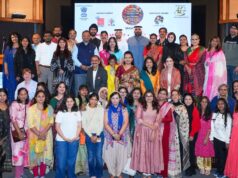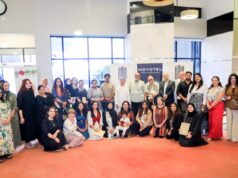Over the last month, I have been interviewing a lot of candidates for various open positions – software product managers, directors of business development and project managers. During the course of looking through resumes, interviewing candidates, I have come across many mistakes that candidates are making. Given this, I thought it is worthy of a blog post.
Now, here are three caveats.

Caveat One: I realize that I am slowly moving into the previous generation , given the young generation (sometimes referred to “Gen Y”) that is coming into the workforce. However, professionalism is independent of which generation you belong to.
, given the young generation (sometimes referred to “Gen Y”) that is coming into the workforce. However, professionalism is independent of which generation you belong to.
Caveat Two: I have not worked in large companies which have large HR departments which use resume databases and do keyword searches to find candidates. I have predominantly worked for smaller companies where the hiring manager is the one leading the recruiting effort, who does not use any complex HR tools and where hiring decisions are made very quickly.
and where hiring decisions are made very quickly.
Caveat Three: I am a software product management guy and have worked only in software companies. So what I state here are all based on what happens in software companies.
So here are “my” top 10 job hunting mistakes based on my observations this past month. These are of course one man’s opinions based on my experience. I have listed them in the order of applying for a job to the interview to post interview.
10 job hunting mistakes based on my observations this past month. These are of course one man’s opinions based on my experience. I have listed them in the order of applying for a job to the interview to post interview.
Applying for a job
1) Emails with no content but just an attached resume: Look, just because you applied for a job, it does not make you a qualified candidate. Given the unemployment climate, every job posting gets a ton of resumes. Believe it or not, recruiting these days is not a “process of selection”, but a “process of elimination”. I see candidates replying to job posts with nothing but a resume. Think about it – does the candidate expect the hiring manager to open the resume, read through all of it and decide if you are a fit? No, very unlikely. Compare that to a candidate who responds to a job posting with a nice email which highlights what s/he has accomplished and why s/he is a great candidate for the open position and attaches the resume to the same email. Whose resume do you think I am going to open? If you don’t have the time to tell me why you are the best fit for the position, it only tells me one thing – You are outright lazy!
2) Lengthy cover letter: This is the other extreme. You write a long letter of multiple paragraphs of how skilled and qualified you are for the job. Sorry, hiring managers typically do not have the time to read the verbose email. Personally, what I am looking for is your elevator pitch that is short and sweet – I love bulleted lists (max 5) of your key accomplishments and why you think you are qualified, because it is easy for me to quickly scan and read such lists.
and sweet – I love bulleted lists (max 5) of your key accomplishments and why you think you are qualified, because it is easy for me to quickly scan and read such lists.
3) Cover letter as a pdf: Hope you are seeing a pattern here. Don’t make the hiring manager do an extra step to find out who you are and what you bring to the table . Having to open the cover letter pdf file is a friction point. I only want to open one file, which is your resume. I am looking for reasons why I should do this. I should not have to open a pdf file to read your cover letter to pique my interest in you. Put it in the email and reduce the work that a hiring manager has to do to find out about you.
. Having to open the cover letter pdf file is a friction point. I only want to open one file, which is your resume. I am looking for reasons why I should do this. I should not have to open a pdf file to read your cover letter to pique my interest in you. Put it in the email and reduce the work that a hiring manager has to do to find out about you.
4) Resume file name that makes no sense: You can call me traditional. But I pay attention to your resume to understand how well you pay attention to details. I have seen resumes sent to me that have had file names of
- “John Doe Universal Resume.pdf” – Here is what this tells me – you have one resume and you are carpet bombing by sending your resume to all the jobs out there and hoping that one will somehow fit your skills.
- “JohnDoesalesAXY-II.doc” – Here is what this one tells me – you have different versions of resume (not bad, you should tailor your resume to the job you are applying), but do I as a hiring manager need to know that you have multiple versions and you have some cryptic coding system to track your resume versions?
Come on folks! Resume is your marketing material, period. I am the buyer and you are the product. As far as I am concerned, your product name is your name. I do not name my resume anything other than “GopalShenoy.pdf”. What I typically do is create folders for each employer that I apply to and have the version of the resume sent to an employer in the appropriate folder. This way, I can have multiple resumes all named “GopalShenoy.pdf”.
5) Resume file format: This one is not a mistake per se, but I see candidates sending in their resumes either as Word documents or pdf files. If you are applying via a recruiter, they will demand a Word document because they want to put their information on top of the resume so that the hiring manager knows that the resume came via the recruiter. But if you are applying directly to a job posting and there are no requirements on how you should submit your resume, I will strongly urge you to use nothing but a pdf file for two reasons:
of the resume so that the hiring manager knows that the resume came via the recruiter. But if you are applying directly to a job posting and there are no requirements on how you should submit your resume, I will strongly urge you to use nothing but a pdf file for two reasons:
- Your resume is your product brochure and represents your brand. No one should be able to make any modifications to this brochure. You own it, period. No one can modify your resume if you send it in as a pdf file.
- Pdf file is portable and looks professional and printing a pdf file is wysiwig. If you send your resume as a Word file, the format is not guaranteed to be portable between Windows
 and a Mac (Yours truly made this mistake and learnt it the hard way).
and a Mac (Yours truly made this mistake and learnt it the hard way).
At the Interview
6) You are not professionally dressed: Look, more and more companies do not have a dress code. For example, at Gazelle we are very informal where most of us wear shorts and T-shirts (and even flip flops) to work. But this does not give you as a candidate the “green signal” to be not professionally dressed when appearing at the interview. If you are not sure, ask about the dress code before the interview, especially if you will be going to the interview from your office and are planning to be back in the office. As a hiring manager, I have proactively asked candidates to not bother wearing a suit. But unless you have been advised about the dress code for the interview, play it safe. Wear a suit – your candidacy should not be affected because you were professionally dressed. Think about it a sales call – you are presenting the best product you have – “You” – so make sure it is presented in the best possible light.
when appearing at the interview. If you are not sure, ask about the dress code before the interview, especially if you will be going to the interview from your office and are planning to be back in the office. As a hiring manager, I have proactively asked candidates to not bother wearing a suit. But unless you have been advised about the dress code for the interview, play it safe. Wear a suit – your candidacy should not be affected because you were professionally dressed. Think about it a sales call – you are presenting the best product you have – “You” – so make sure it is presented in the best possible light.
7) Walk into the interview without your resume: This one bugs me a lot. Imagine, if you are a sales person, will you show up at a prospect’s office without a handout about your product? I really don’t care if you have send me your resume or not. I am likely going to schedule my boss or my peers to interview you. Some of them may not have taken the time to print out your resume before they come to talk to you. If I walk in to meet with you and you don’t have a resume with you, you have started off the wrong foot as far as I am concerned. Let me say it again – “Resume is your brochure – DON’T EVER go to an interview without a copy of your resume.”
8) You don’t have an elevator pitch: The first question I always ask any candidate I am interviewing is the same – “Can you please give me your elevator pitch and you have one minute”. The answer to this question tells me a lot about you – your communication skills, whether you are capable of highlighting your skills and qualifications in a short amount of time and how all of this is relevant to the job you are applying for. Nail it, this is your chance to make the best impression. You should nail it such that I want to know more. However, don’t make it pompous, be modest. But if all I hear is about the schools where you got educated, about your family, your past jobs etc., you are not making an impression. Don’t get me wrong – I want to know more about you as a human being and I respect you for that. But interviews are professional in nature and you should be talking about how you can help the employer with your skills and qualifications, nothing else.
amount of time and how all of this is relevant to the job you are applying for. Nail it, this is your chance to make the best impression. You should nail it such that I want to know more. However, don’t make it pompous, be modest. But if all I hear is about the schools where you got educated, about your family, your past jobs etc., you are not making an impression. Don’t get me wrong – I want to know more about you as a human being and I respect you for that. But interviews are professional in nature and you should be talking about how you can help the employer with your skills and qualifications, nothing else.
9) You have no questions for me: I respect those candidates that have a lot of questions for me. This is an indicator of their interest in the job, in the company. This is your golden opportunity to show the recruiter how you think, how you do your research or gather information. For example, if you are a software product manager and are applying for a product management position, I expect you to ask me questions that will help you understand the product management landscape in the company. Listen, interviews should be a two way exchange between you and the company. The company should gather enough information about you to see if you are a fit for the job and you in turn should be able to gather information about the company to make sure this is where you want to work for the foreseeable future. Given this, why would you waste the opportunity to ask questions of me as the hiring manager or others who are interviewing you?
After the interview
10) No thank you email: After the interview is over and you are back home, take the time to send a thank you email to each of the people you interviewed with. If you don’t do this, you are again wasting an opportunity (probably the last one) to refresh the hiring manager’s memory of why you are the best candidate for the job. You want to do this when everything is fresh in the memory of everyone involved. Sending this thank you email does not guarantee you anything, but it will never hurt and it is the right thing to do as a professional.
Source: productmanagementtips.com







